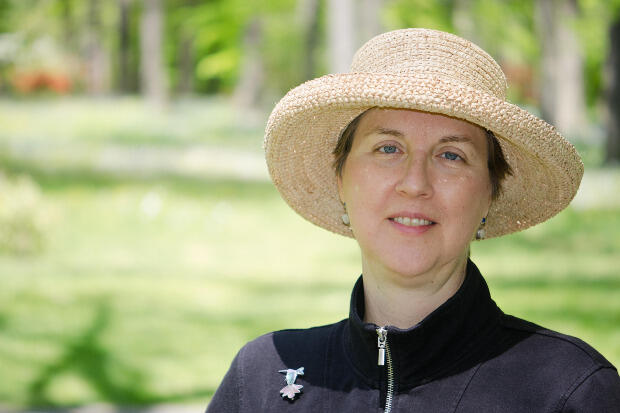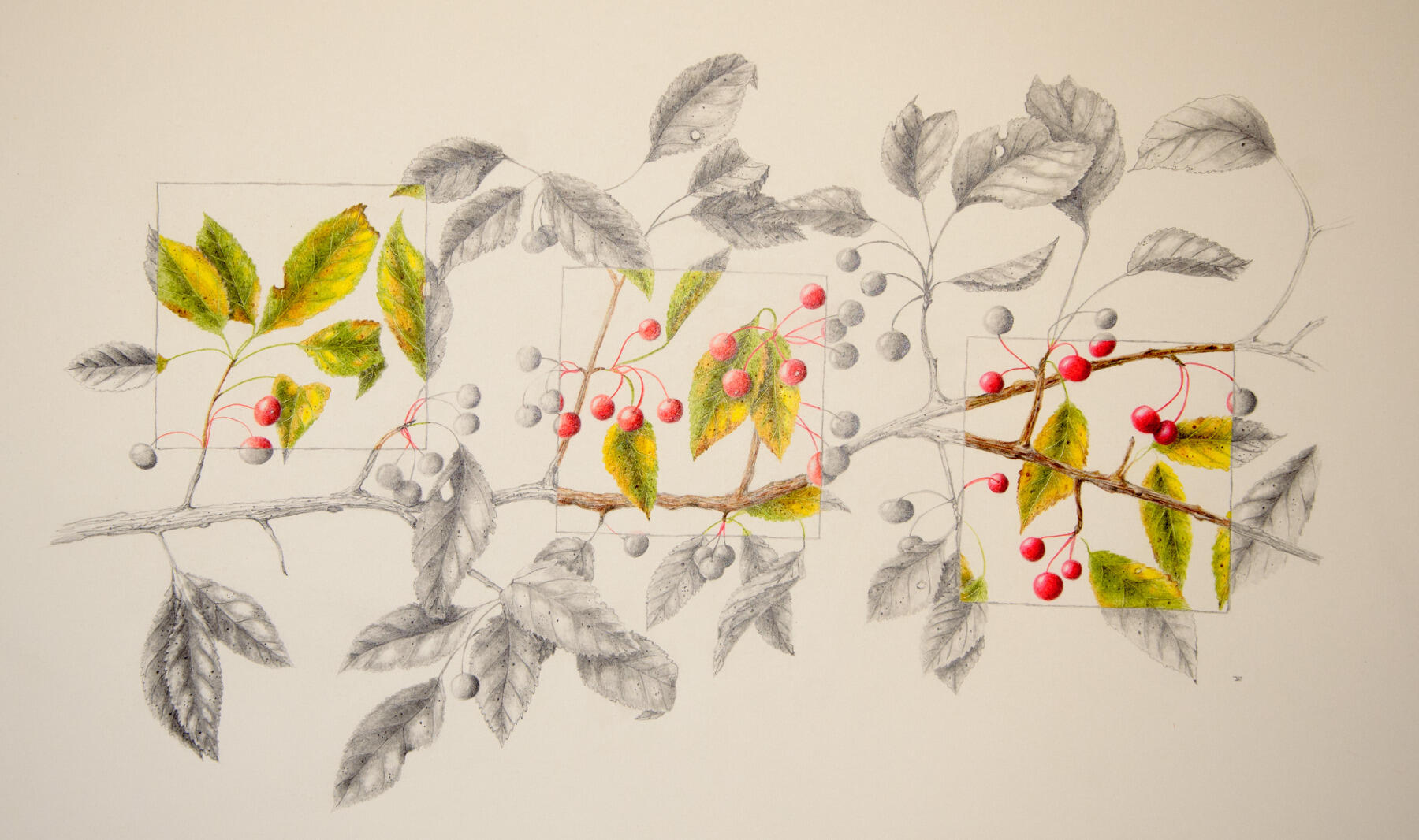
March 2, 2016
Botanical art helps professor find fulfillment both inside and outside of the classroom
Share this story
Judy Thomas, Ph.D., a faculty member in the School of Social Work, splits her time between two passions: teaching the next generation of social workers at Virginia Commonwealth University and creating beautiful botanical illustrations.
Thomas, an assistant professor in teaching, is an accomplished botanical artist and instructor who teaches classes at Lewis Ginter Botanical Garden, where her artwork is currently on display.
“In addition to my job at VCU, I teach colored pencil for botanical artists in Richmond,” she said. “I am a member of several art guilds: Central Virginia Botanical Artists, the Botanical Art Society of the Capitol (DC) Region and the American Society of Botanical Artists. Oh, and I started the Chickahominy Color Pencil Group and teach drawing as a volunteer at a local library.”
Thomas, who was an art minor in college and painted abstracts for years, became interested in botanical illustration and art in 2006 when she took an introductory course on botanical illustration at Lewis Ginter.

Botanical illustration, she said, is a scientific discipline, requiring the artist to measure and draw the botanical specimen with accuracy.
“In botanical illustration, we have many rules, [such as] to draw on a white or off-white background, to depict all parts of the plant, in all stages of development, and to dissect the flower and draw the parts,” she said. “We also try to draw the specimen in all seasons and stages of growth and understand, and depict, the mathematics of repeating botanical structures. The goal is to aid in plant identification and produce a thing of beauty.”
Botanical art, she said, is less restrictive. She considers herself to be a nontraditional, contemporary botanical artist.
At the School of Social Work, Thomas teaches mostly junior social work majors in a variety of their core social work courses.
“I love teaching the juniors, as they are at the beginning of their social work training, and are just developing their professional affiliations and identity with the field of social work,” she said. “Currently, I'm having a great deal of fun teaching introductory statistics to second-semester juniors, as well as a course in families and groups.”
Teaching social work and teaching botanical art are very different, but in some ways very similar, she said.
Drawing is a meditative experience, which helps one work with clients and students.
“Teaching a hands-on skill like drawing is very different from academic, didactic instruction in the classroom,” she said. “However, both require organization, and [an] ability to explain complex subjects in ways students of all abilities can understand, as well as a capacity to teach problem-solving skills.
“Also,” she said, “students in both domains need skill-building activities, whether it is learning how to interview a family, assess a scholarly journal article, or to achieve the right level of shading to make an object look dimensional.”
Thomas added that she finds the creative process is useful to the helping professions, such as social work, as well as in art.
“Social work students need to find their best ‘way of working,’ as well as use empirical, thoughtful, yet creative, approaches to do in their work and serve clients,” she said. “Drawing is a meditative experience, which helps one work with clients and students.”
Thomas took a year off from teaching at VCU to further her training in scientific illustration. She took a course led by the lead botanical illustrator at the Smithsonian Institution, completed colored pencil coursework in Denver, and attended a two-week botanical art workshop in Hawaii.

“I spent 17 days there drawing the most amazing tropical flowers I have ever seen,” she said. “I followed up that trip with one to South Florida, drawing at the National Tropical Botanical Garden in Coral Gables, as well as the Fairchild Tropical Botanical Gardens and other, smaller gardens.”
As a professor, Thomas is highly regarded by her social work students, serving as an example of someone who follows her passion, while maintaining life balance. In 2013, she received the Phi Kappa Phi Great Minds Award, a VCU-wide honor for excellence in teaching, nominated by her students.
“My students know that I work half time so that I can pursue art,” she said. “I talk with them about the importance of a well-rounded life, following your interests and the necessity of self-care. The concept of self-care implies it is difficult for social workers to give to others in demanding circumstances unless they are grounded and feel whole.
“When I create art, I experience a combination of calmness and alertness, a state that is also necessary to provide good social work service,” she added. “I teach students that this calm, but alert, state is necessary for objective and compassionate service provision.”
Subscribe for free to the weekly VCU News email newsletter at http://newsletter.news.vcu.edu/ and receive a selection of stories, videos, photos, news clips and event listings in your inbox every Thursday.
Subscribe to VCU News
Subscribe to VCU News at newsletter.vcu.edu and receive a selection of stories, videos, photos, news clips and event listings in your inbox.










